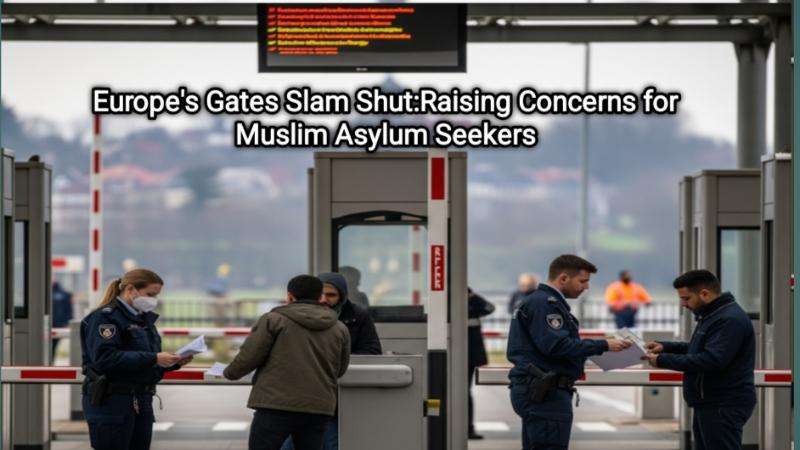Europe is witnessing an accelerating push towards significantly stricter immigration policies, with Germany moving to suspend family reunification rights for asylum seekers and the Netherlands' far-right leader Geert Wilders unveiling an aggressive plan to drastically cut migration. These parallel developments highlight a continent-wide trend to close doors to new arrivals, a shift largely fueled by growing public discontent and the rising influence of anti-immigrant, often anti-Islam, political parties, Daily Dazzling Dawn understands.
Germany, long considered a bastion of welcoming asylum policies, has announced it will suspend the right for asylum seekers to bring family members into the country, a policy that had allowed up to 1,000 individuals a month to join relatives since 2018. This decision, announced by Alexander Dobrindt, the interior minister of the Christian Social Union (CSU) party, is explicitly aimed at "significantly reduc[ing] the pull factors to Germany." The move is seen as a direct response to the surging popularity of the far-right Alternative for Germany (AfD) party and aims to save €12 million annually, primarily from integration language courses. For thousands, particularly from conflict zones like Syria and Afghanistan, who had hoped to reunite with loved ones, this suspension shatters those aspirations and underscores a hardening stance in Europe's largest economy.
Meanwhile, in the Netherlands, anti-Islam lawmaker Geert Wilders, whose Party for Freedom (PVV) swept to victory in the 2023 election on an anti-migration platform, has declared "the gloves are off." He unveiled a sweeping 10-point plan to slash migration, threatening to withdraw his party from the fragile four-party ruling coalition if his demands are not met. Wilders' proposals include using the army to guard land borders, turning away all asylum seekers, temporarily halting family reunions for those with refugee status, and even returning Syrians, arguing much of their home country is now safe. His plan also advocates for a "one strike you're out" policy, deporting any migrant convicted of violent or sexual crimes. Wilders explicitly stated that some of his proposed measures have already been adopted by other European nations, including Germany, while others would require the Netherlands to step out of European conventions.
These moves, while framed as efforts to manage migration flows and alleviate pressure on public services, carry a significant underlying concern for discrimination. Both Germany and the Netherlands are seeing a rise in political rhetoric that often conflates migration with security concerns and cultural integration challenges, frequently targeting predominantly Muslim communities. While not explicitly stated as anti-Muslim policies, the impact disproportionately falls on asylum seekers from Muslim-majority countries like Syria and Afghanistan, who constitute a large portion of those seeking refuge in Europe. This trend raises alarm among human rights organizations and advocates who fear that Europe is increasingly closing its doors, not just to migrants, but specifically to those from certain religious and ethnic backgrounds.
The combined actions in Germany and the Netherlands signal a broader shift across Europe, as governments respond to rising far-right sentiment and public anxieties by enacting increasingly restrictive immigration laws. The question now is whether the UK and other European nations will follow suit, further tightening their borders and potentially abandoning long-held international commitments to asylum and refugee rights, creating an even more challenging landscape for those seeking safety and a new life on the continent.Amidst Europe's hardening stance on immigration, a palpable anxiety ripples through Bangladeshi, Indian, Pakistani, South Asian, and African immigrant communities, fearing an increasingly unwelcoming future and the erosion of their hard-won sense of belonging.

_8.jpg)
_5.jpg)
_8.jpg)




.svg)


